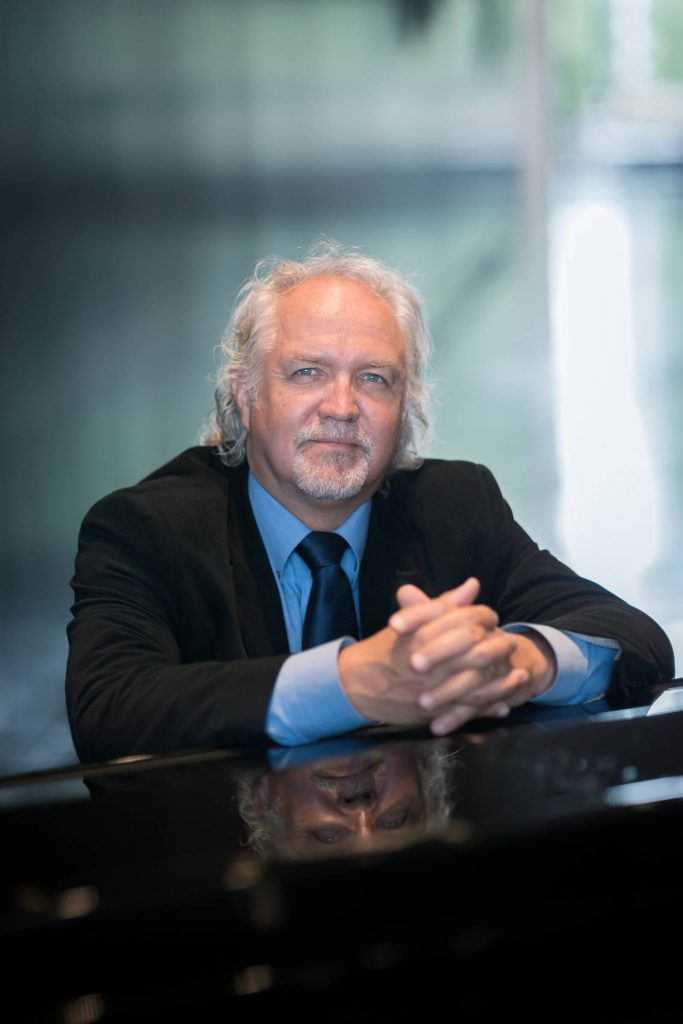Runnicles returns to NSO with gorgeous French program

Donald Runnicles conducted the National Symphony Orchestra in music of Debussy, Ravel and Durufle Friday night at the Kennedy Center. Photo: Simon Pauly
Amid all the speculation last season about Christoph Eschenbach’s successor at the National Symphony Orchestra, Donald Runnicles made his debut with the orchestra. The stars seemed to be aligning, since the Scottish conductor’s term as music director of the BBC Scottish Symphony Orchestra ends this year. The NSO made a surprise early move for Gianandrea Noseda instead, and the rest is history.
A second guest stint from Runnicles, heard Friday evening at the Kennedy Center Concert Hall, offered a chance to hear what might have been.
The focus this time was France at the turn of the 20th century. Claude Debussy’s Trois Nocturnes, completed from 1897 to 1899, represent a crucial stage in the breakdown of tonality. The NSO had not performed the complete set since 2000, likely because the third piece requires a wordless female chorus.
Runnicles met the work where it lies. This is not music that grabs you by the collar; it floats by in a haze. Debussy likened what he was doing to a painter exploring the chromatic possibilities of a single color, like “a study in gray.”
In “Nuages,” Runnicles kept the orchestral colors shimmering in an ultra-subtle mist. The oscillating harmonies hovered around superb woodwind solos, especially from English horn player Kathryn Meany Wilson. At one point, whispered seventh chords plane downward, and at the end the cellos gave an indistinct rumbling that led to the final timpani note, at the softest dynamic possible.
Vaster plateaus of sound opened up in “Fêtes,” an evocation of air and sound, the atmosphere around some sort of wild celebration. The highlight was the concluding movement, “Sirènes,” in which about fifty women from the University of Maryland Concert Choir suspended their voices on billowing sea music from the orchestra. With his hands Runnicles helped the singers shape some lovely phrasing, keeping their sound as if off in the distance, although they were just above the stage in the chorister seats.
The only misstep of the evening was in an odd set of four Debussy Préludes. The arranger, Colin Matthews, found eclectic ways to orchestrate these often eclectic pieces. He did his best work in the lush sounds of “Les sons et les parfums tournent dans l’air du soir,” with its delicate and unusual combinations of instruments. Matthews relied on the contrabassoon for comic effect too often, and “Minstrels” and “Général Lavine — eccentric” proved difficult to coordinate.
It was a brilliant move to combine Trois Nocturnes with the Requiem by Maurice Duruflé, likewise not heard from the NSO since 2000. On a practical level, both works require chorus, but the influence of Debussy’s harmony on the later composer becomes apparent when the two works are juxtaposed. Indeed in the opening “Introit,” it was as if Debussy’s wordless, undulating sirens (singing on “â”) were accompanying the men on the Gregorian chant. When the women had the chant, on the psalm tone (“Te decet hymnus”), the subtly shifting woodwind choirs that accompany them could have fit quite nicely into “Nuages.”
No composer since the Renaissance has set Gregorian chant as fluidly as Duruflé, capturing its flowing rhythm with natural ease. Runnicles guided his forces through these complexities with supreme confidence. The massive orchestral crescendo, at the end of the “Christe eleison” and in the “Hosanna,” for example, had an oceanic swell. The piece is sometimes described as liturgical, but Duruflé has his dramatic, almost operatic moments, too, and Runnicles went for them with gusto, in the “Domine Jesu Christe” and “Libera me.”
The solo vocal parts in this work are not substantial and could probably be given to members of the chorus. Mezzo-soprano Sasha Cooke had some intonation struggles in the soft opening part of the “Pie Jesu,” becoming stronger as the piece grew. Baritone Christian Bowers did well in his two contributions but was not especially powerful or elegant. The real stars were the University of Maryland Concert Choir, who responded to Runnicles with extraordinary precision and nuance, a credit to their director, Edward Maclary.
As the chorus sang angelically in the “Lux Aeterna” and “In Paradisum” movements especially, it seemed a missed opportunity not to have offered these words and this music to the memory of the dead. In this performance on Veterans Day, quite fittingly, one hopes the prayer was heard on behalf of the men and women who gave their lives to defend the United States.

